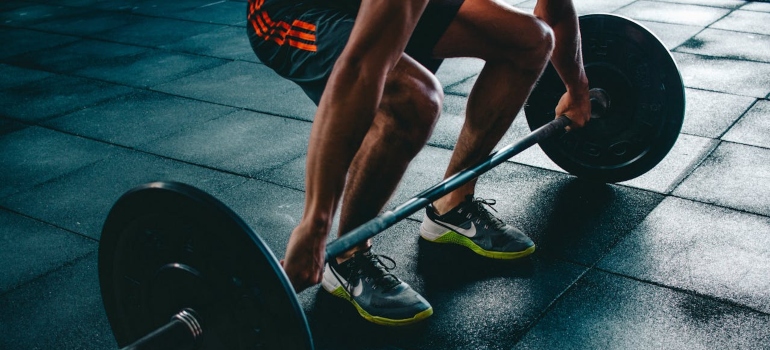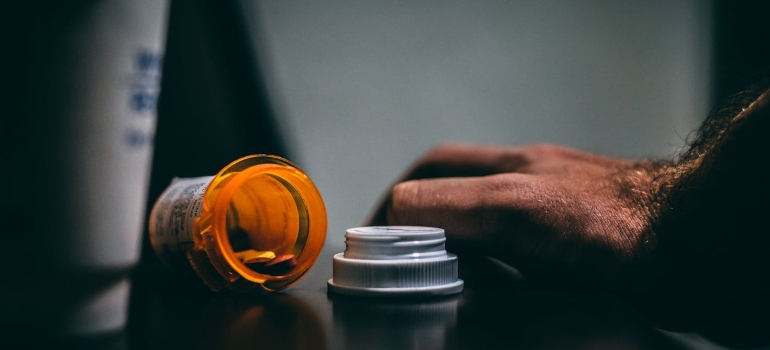Performance-enhancing drugs (PEDs) have become increasingly common among bodybuilders aiming for extreme physical results. While these substances promise quick muscle gains and improved performance, they come with significant risks. Many bodybuilders find themselves trapped in a cycle of dependency, leading to both physical and psychological addiction. The link between performance-enhancing drugs and addiction in bodybuilders is often overlooked, but it’s a serious issue with long-lasting consequences. In some cases, bodybuilders may turn to places like rehabs in WV for help with their recovery. This article will explore the types of performance-enhancing drugs commonly used, why they are so appealing, the dangers they pose, and how addiction can take hold. Additionally, we will discuss recovery options and healthier alternatives for those looking to achieve their fitness goals naturally. Understanding this link is crucial for addressing the growing issue of drug dependence in the bodybuilding community.
Common Performance-Enhancing Drugs Used by Bodybuilders
Bodybuilders often turn to a range of performance-enhancing substances to boost their strength, muscle mass, and endurance. Among the most commonly used drugs are anabolic steroids, which mimic the effects of testosterone, promoting rapid muscle growth and recovery. Another popular choice is human growth hormone (HGH), which helps to increase lean body mass and improve overall performance. However, both steroids and HGH can lead to severe side effects, especially when used over long periods.

In addition to these, stimulants like clenbuterol and ephedrine are frequently used by bodybuilders to enhance their endurance and burn fat. These substances act as fat burners and can give users an edge during cutting phases, where maintaining muscle mass while losing fat is crucial. Some bodybuilders also experiment with synthetic or organic drugs, ranging from peptide hormones to over-the-counter supplements, in search of the perfect combination that will yield the best physical results.
However, many of these drugs are not only dangerous but also addictive. Despite the promises of fast improvements, the misuse of these substances can lead to irreversible health issues. Even seemingly harmless supplements, when misused, can trigger dependence and lead users down a path of addiction. The combination of synthetic or organic drugs, when taken without medical supervision, opens the door to many risks.
Why Bodybuilders Turn To Performance-Enhancing Drugs
Bodybuilders often face immense pressure to achieve and maintain extreme physical results, leading many to turn to performance-enhancing drugs. The competitive nature of bodybuilding, coupled with the desire for the perfect physique, pushes individuals beyond what can naturally be achieved. As body image plays a significant role in the sport, some bodybuilders feel that without PEDs, they won’t be able to keep up with others or reach their personal goals. This desire for constant improvement and fear of failure can create an unhealthy relationship with these substances.
In many cases, the drive to enhance performance comes from the pressure of competition. Professional bodybuilders often feel they must meet higher standards to win. PEDs provide a shortcut to faster muscle gain, quicker recovery, and better endurance, making them hard to resist. In addition, the physical demands of intense training can take a toll on the body and mind. Many turn to PEDs to manage the burnout that accompanies rigorous workout schedules and the stress of preparing for competitions.
Body image issues also contribute significantly to PED use. The pursuit of a “perfect” physique can lead to feelings of inadequacy, pushing bodybuilders to rely on these substances as a way to transform their bodies quickly. Unfortunately, the cycle of using performance-enhancing drugs to meet these expectations often leads to dependence. Thus, the bodybuilders are trapped in a loop of drug use to maintain their physical appearance and mental well-being.

The Cycle of Dependence
The initial use of performance-enhancing drugs may start as a means to achieve specific physical goals. However, it can quickly turn into a cycle of dependence. For bodybuilders, the fear of losing progress or strength often keeps them using these substances long after their initial purpose has been fulfilled. As their bodies adjust to the drugs, they may need higher doses to maintain their gains. Thus, this leads to a dangerous escalation. This cycle creates a physical dependence, where stopping the drugs results in withdrawal symptoms such as fatigue, muscle loss, and depression.
Beyond the physical dependence, the mental and emotional strain that bodybuilders experience can further entrench them in their reliance on these substances. Many find themselves unable to stop using PEDs out of fear of losing the physical progress they’ve made, leading to long-term addiction. This dependence often extends beyond just the need for muscle maintenance; it can affect their sense of identity and self-worth.
Moreover, the pressure to constantly improve and maintain a certain physique can isolate bodybuilders from their social circles, creating a link between loneliness and addiction. The isolation that results from focusing solely on physical achievements, combined with the constant reliance on drugs, can deepen the dependence. As this cycle of dependence continues, many bodybuilders find it increasingly difficult to break free from their reliance on performance-enhancing drugs, further blurring the line between striving for excellence and struggling with addiction.
Psychological Impact and Addiction
Performance-enhancing drugs not only affect the body but also have a significant psychological impact. For many bodybuilders, the use of these substances evolves from a tool for physical enhancement to a crutch for dealing with deeper emotional and mental health issues. As the reliance on these drugs grows, bodybuilders may struggle with body dysmorphia, a condition where they obsess over perceived flaws in their physique, even when they have already achieved impressive results. This distorted self-image can fuel continuous drug use as they chase an unattainable standard of perfection.
The psychological consequences of drug use become more severe by the impact of addiction on brain chemistry. Long-term use of performance-enhancing drugs, especially anabolic steroids, can alter the brain’s reward system, leading to mood swings, increased aggression, and even depression. Bodybuilders may find themselves dependent on these substances not just for physical gains but for emotional stability as well. The drugs can create a false sense of confidence and control, masking underlying insecurities or mental health problems.
Over time, this psychological reliance can be as damaging as the physical effects of the drugs. Many bodybuilders experience anxiety, depression, and other mental health issues. And they are frequently made worse by the hormonal imbalances caused by PEDs. This creates a cycle where the drugs are used to cope with these feelings, making it increasingly difficult to stop without professional help.

Health Risks and Consequences
The use of performance-enhancing drugs comes with serious health risks that extend far beyond physical appearance. While some may see short-term benefits like increased muscle mass and endurance, the long-term consequences can be severe. One of the most concerning risks is the hormonal imbalance caused by anabolic steroids. This can lead to issues like infertility, heart disease, and liver damage. In addition, excessive use of stimulants or other PEDs can cause dangerous side effects such as high blood pressure, cardiovascular problems, and even kidney failure.
The mental health risks are equally concerning. Bodybuilders who rely on these substances often face emotional instability. This includes severe mood swings and anxiety. These effects are compounded as they progress through the different stages of addiction. As the addiction deepens, the physical and mental toll on the body can become irreversible. The constant strain on organs, particularly the liver and heart, puts users at high risk of life-threatening conditions.
In some cases, prolonged use of PEDs has been linked to increased aggression, sometimes referred to as “roid rage”. This can damage personal relationships and lead to social isolation. The combination of physical damage, mental health issues, and the strain on personal life makes addiction to PEDs particularly dangerous. Bodybuilders may continue using these drugs despite knowing the risks, driven by their need to maintain their physical gains. However, the long-term consequences are often devastating, making recovery and intervention critical.
The Role of the Fitness Industry in Fostering Addiction
The fitness industry and competitive bodybuilding play a significant role in normalizing the use of performance-enhancing drugs. Many bodybuilders feel that taking PEDs is not only accepted but almost expected to stay competitive. The intense focus on achieving extreme physical results often leads to an environment where drug use is seen as a necessary step to reaching success. In competitions, there is immense pressure to achieve the most muscular, leanest, and most defined physique, and PEDs can offer an edge that natural methods can’t always provide. This culture fosters a mindset where drug use becomes the norm, making it easier for bodybuilders to justify their choices.
Social media also plays a part in this normalization. Influencers and athletes often showcase their extraordinary physiques without revealing the potential PED use behind their success. This can lead to unrealistic expectations for those who follow these figures, as they may believe they can achieve similar results through hard work alone. As a result, the line between natural and enhanced physiques becomes blurred, further promoting drug use. The lack of open discussion about the dangers and consequences of PEDs in these communities only reinforces the problem, leaving many bodybuilders unaware of the serious risks they are taking. The fitness industry’s role in fostering this environment makes it difficult for those struggling with addiction to break free from the cycle of drug dependence.

Signs of Addiction in Bodybuilders
Identifying the signs of drug addiction in bodybuilders is crucial for early intervention. While some symptoms may be obvious, others can be more subtle, making it essential to understand what to look for. Here are some common signs that may indicate a bodybuilder is struggling with substance abuse:
- Obsessive focus on drug use: Constantly thinking about performance-enhancing drugs, researching new substances, or planning cycles.
- Inability to stop using PEDs: Attempts to quit are unsuccessful, even after experiencing negative health effects or social consequences.
- Physical deterioration: Despite initial muscle gains, long-term PED use can lead to issues like acne, hair loss, and decreased overall health.
- Withdrawal symptoms: When off PEDs, bodybuilders may experience fatigue, depression, or muscle loss, leading to a cycle of drug dependency.
- Mood swings and aggression: The use of anabolic steroids can cause increased irritability and aggression, sometimes referred to as “roid rage.”
- Declining performance without PEDs: The individual may feel they can’t maintain their results or continue training effectively without using drugs.
- Social isolation: Withdrawal from friends, family, or social activities due to the focus on maintaining the bodybuilding lifestyle or hiding drug use.
Recognizing these signs is the first step in helping bodybuilders address their addiction and seek the necessary support to overcome it. Early intervention can prevent long-term health damage and aid in recovery.
Recovery and Support
Recovery from addiction to performance-enhancing drugs can be a challenging process. This is especially true for bodybuilders who may feel that their identity and success are tied to their physical appearance. Seeking help is often difficult due to the stigma surrounding drug use in the bodybuilding community. Many people fear judgment or believe that quitting PEDs will mean losing their hard-earned progress. However, overcoming addiction is crucial not only for physical health but also for mental well-being.
There are various support systems available for bodybuilders struggling with addiction. Therapy, counseling, and rehabilitation programs tailored to athletes can help individuals break the cycle of dependence. Programs like substance abuse treatment WV offer specialized care for those dealing with both the physical and psychological effects of performance-enhancing drugs. These programs often include counseling, medical support, and fitness guidance to help bodybuilders regain control of their health. Recovery is not just about quitting PEDs but learning how to rebuild a healthier, drug-free lifestyle that supports long-term success in and out of the gym. Seeking help is the first step toward reclaiming control and finding balance in both body and mind.

Promoting Healthy Alternatives to PEDs
For bodybuilders seeking to achieve their fitness goals without relying on performance-enhancing drugs, there are healthier alternatives. Natural bodybuilding focuses on proper nutrition, consistent training, and adequate rest, all of which can help build strength and muscle over time. It may take longer to see results, but the benefits are lasting and free from the harmful side effects of PEDs. Supplements like protein, creatine, and branched-chain amino acids (BCAAs) can also provide a boost without the risks associated with synthetic drugs.
Mental well-being is equally important. Focusing on realistic goals and avoiding the pressure to meet unattainable standards can help prevent the temptation to use PEDs. Many bodybuilders who have successfully overcome addiction, with the support of programs like drug rehab WV, find that embracing a balanced and natural approach leads to both better physical health and improved mental well-being in the long run.
Addressing the Link Between Performance-Enhancing Drugs and Addiction in Bodybuilders
The link between performance-enhancing drugs and addiction in bodybuilders is a serious issue that often goes unnoticed. What starts as a way to improve performance and appearance can quickly spiral into dependence, affecting both physical and mental health. The fitness industry, combined with societal pressures, has normalized the use of PEDs, making it harder for individuals to recognize the dangers. However, recovery is possible. By seeking help, bodybuilders can break free from the cycle of addiction. Embracing natural bodybuilding methods and focusing on overall well-being offers a healthier, long-term path to success both in fitness and in life. It’s never too late to make a positive change.



